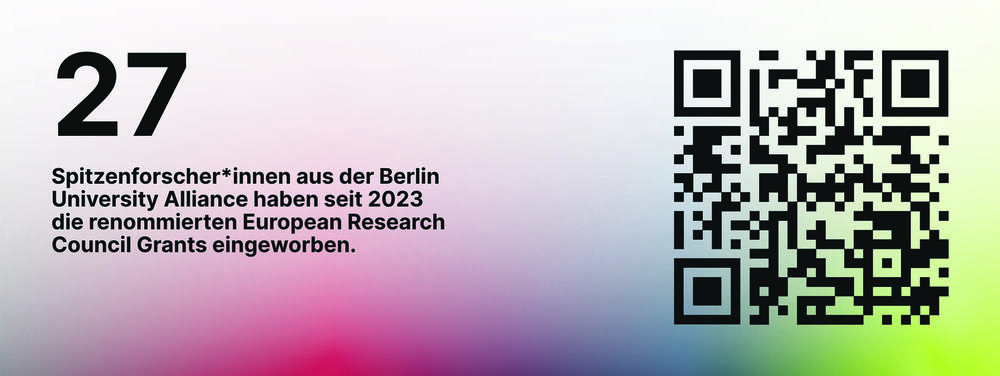The 100 most important minds in Berlin academia. Episode 8: They swim against the tide
Oct 28, 2024
Determined, unyielding, and consistent, these scientists pursued their course and prevailed. They question conventions—and headwinds only give them more energy.
- Prof. Dr. Ana Pombo (Charité – Universitätsmedizin Berlin): Although the genome appears disordered at first glance, it actually follows a hidden architecture. When several genes come together in close proximity, they are activated more efficiently. This type of genetic control can influence all kinds of life processes: the development of the body, but also diseases such as cancer or epilepsy. For these ideas, Pombo, professor of “Transcriptional Regulation and Genome Architecture” at Humboldt University in Berlin and deputy director of research at the Max Delbrück Center for Molecular Medicine, initially faced massive headwinds, but later gained recognition: in 2025, she was awarded the Leibniz Prize, the highest scientific award in Germany. Now the Portuguese scientist is working on a comprehensive picture of the cell nucleus, which she sees as an ecosystem of DNA, proteins, and all kinds of other molecules.
-
Prof. Dr. Jens Kurreck (Technische Universität Berlin): Innovations are possible without animal testing, as demonstrated by Jens Kurreck, professor of applied biochemistry. At the Technical University of Berlin, he works on RNA technologies, personalized therapies, and organ models from 3D bioprinters. Together with his team, he has achieved a breakthrough: they have produced a liver from human cells for the first time – without using any materials of animal origin. In addition to the ethical aspects, this could also improve the transferability of study results to humans.
-
Dr. Katarina Riesner (Charité - Universitätsmedizin Berlin): Animal testing cannot be completely avoided for the time being. That is precisely why the needs of laboratory animals should be at the forefront of researchers' specifications, Riesner believes. And she wants to convince her colleagues to go beyond the legal minimum. Although this is costly, it leads to better results.
-
Dr. Anna Abalkina (Freie Universität Berlin): For years, this economist and Eastern European researcher has been systematically documenting plagiarism, purchased authorship, and “factories” for scientific essays. Her research on hijacked journals prompted even the major publisher Elsevier to take action. Her name is now on an official watch list of the Russian regime, but in the West she is considered one of the most important voices in the fight for clean research. The journal Nature named her one of the ten most influential researchers in 2024.
-
Prof. Dr. Stefanie Marker (Technische Universität Berlin): The professor is driving forward the electrification of truck transport, as these vehicles account for a tenth of global CO₂ emissions. In 2020, she launched the “eHaul” project with automatic battery changing stations, which saves freight companies time and money. Today, she is working with European manufacturers and standardization institutes on standards to bring e-trucks to Europe's roads.
-
Prof. Dr. Tanja Kneiske (Technische Universität Berlin): Tanja Kneiske tackles the technical hurdles involved in making energy infrastructures more efficient. Now, the physicist and engineer has been appointed by the German government to the Expert Council for Climate Issues, alongside four other scientists. Since 2024, she has headed a new department on this topic at the TU Berlin and a competence center at the Fraunhofer Institute for Energy Infrastructure and Geothermal Energy in Cottbus.
-
Prof. Dr. Petra Anders (Humboldt-Universität zu Berlin): Completely new approaches are needed to help children overcome declining reading and language skills. Anders developed a poetry slam for elementary school children, for example. She also launched the “Praxisschock-Slam” (Practical Shock Slam), in which teacher training students and experienced teachers write texts about their experiences in everyday school life and recite them at the Grips Theater in Berlin. She was awarded the Communicator Prize by the German Research Foundation for her creative ideas.
They were all featured today in the Tagesspiegel (October 8, 2025) as part of the series “The 100 most important minds in Berlin science". More in the Tagesspiegel (T+, in German).

